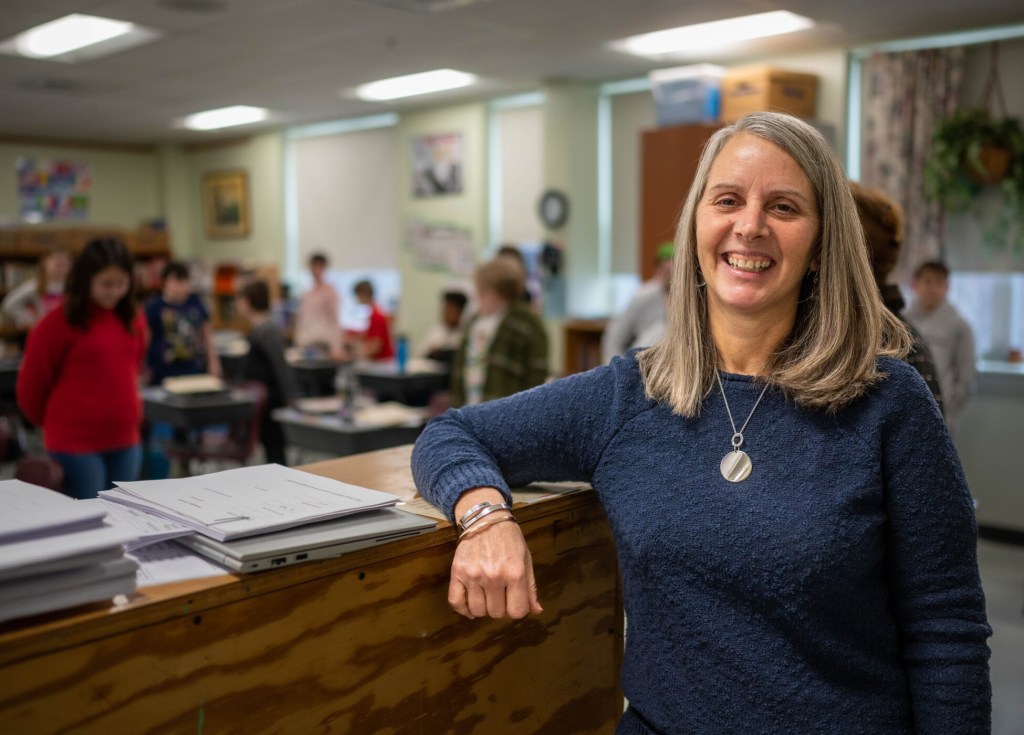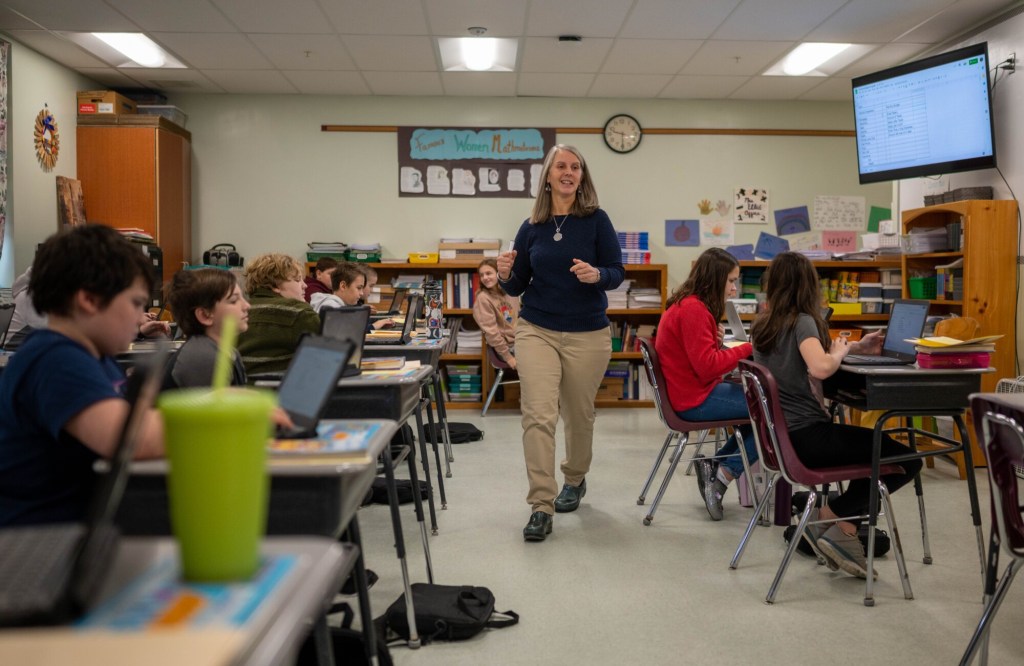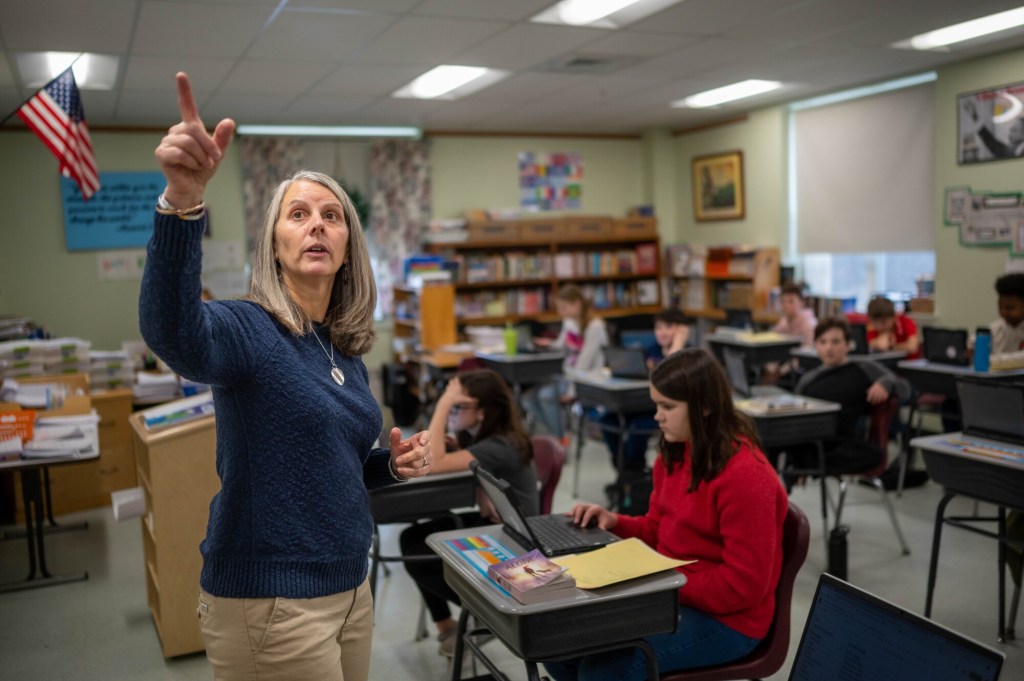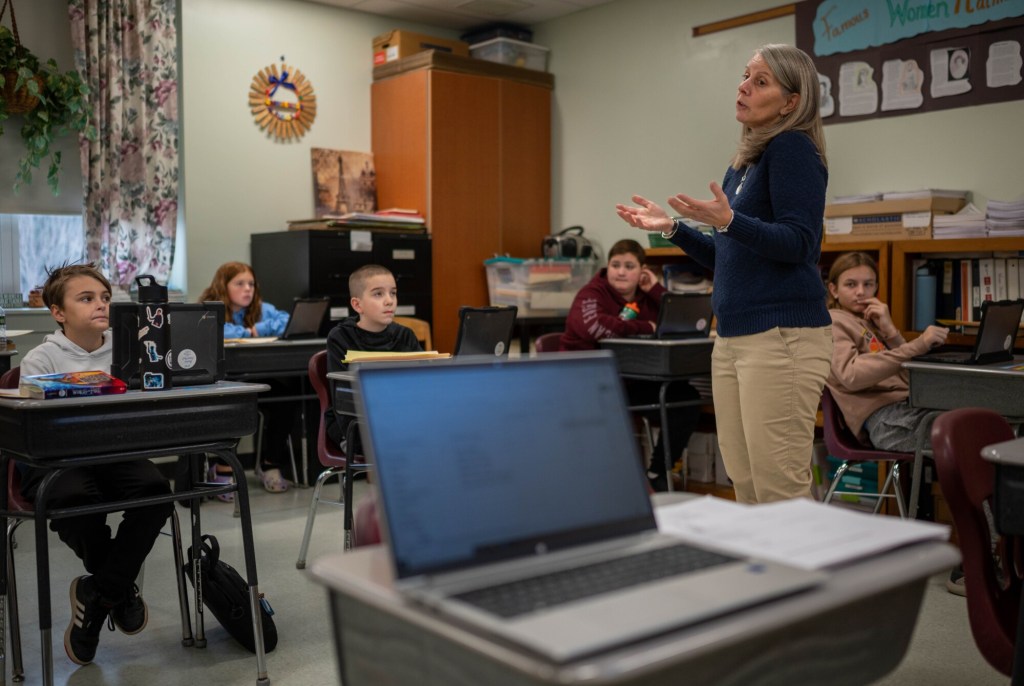GREENE — As the counselor for Greene Central School, Jennifer Simmons often works quietly behind the scenes to support the well-being of students and staff.
She meets one-on-one with students in need of counseling, teaching social and emotional skills in the classroom. When students and their families find themselves in difficult situations outside of school, she helps connect them to agencies which can help.
And in times of tragedy, Simmons is at the center of the school’s efforts to help students and staff grieve, heal and move forward, even while working through her own emotions.
But last month, Simmons’ dedication was recognized by all of Maine School Administrative District 52 with the Patience W. Norman Prize for Teacher Excellence. The honor, which comes with a $5,000 award, is given annually to a MSAD 52 teacher who displays “unusual impact and effectiveness in the classroom” and “creativity and innovation in teaching,” according to the evaluation criteria.
Normally given to classroom teachers, Simmons believes she may be the first mental health professional to receive the honor.
Kindergarten teacher Becca Burk, one of two teachers who nominated Simmons for the award, said Simmons “has this ability just to make everyone feel welcome and loved in a place that can be overwhelming, whether they’re 4 or 12 or 31. She’s the safe place, she’s the place that you know you’re going to get answers and feel heard.”
Burk, who joined Greene Central School last year, said she was confused when she learned Simmons would be her mentor. But soon, she understood.
“She’s the heartbeat of our school,” Burk said. “Whenever someone has a question or a problem to solve, she’s the one we go to.”
Third-grade teacher Jennifer Bassett also nominated Simmons for the award. Simmons not only knows and cares about every person in Greene Central School, she said, but she often goes far beyond what is expected of her.
“She doesn’t get the recognition that she deserves,” said Bassett, the 2020 recipient of the Patience Norman award. “She does everything so quietly and under the radar . . . She just does it because it needs to be done, and it’s the right thing to do. I thought it was time for her to get acknowledged for that.”
Bassett recalled a few years ago when something tragic happened over school break, Simmons had showed up at her door in person to share the news.
“She just didn’t want to say it over the phone,” Bassett said. “She came to tell me in person, and I’ll always remember that.”
As an undergraduate psychology major, Simmons interned at a battered women’s shelter in Boston. But while she enjoyed helping the women, it was the children who left a lasting mark.
“They were most affected by the domestic violence,” she said. “And so I thought, those kids need that support and they need to learn other ways to handle situations so that the cycle is not repeated.”
Simmons went on to earn a master’s degree in school counseling, and 30 years later — with nearly 25 years at Greene Central School — she still loves her job and the students she supports.
In the past five or six years, Simmons said she has seen a rising need for social and emotional support for children. She believes the root problem isn’t quite social media or technology, as many others often cite, but the loss of community connections and core relationships.
Rather than teaching children to handle difficult moments on their own, it’s become all too easy for parents to ease their children’s discomfort by providing their children entertainment through cellphones and other devices, she said.
But unlike at home, school staff can’t hand students phones to distract them or even come to their immediate aid in times of distress.
Simmons believes the core of her work isn’t necessarily comforting students in times of crisis or fixing their problems, but rather helping them learn the skills necessary to better manage life’s challenges on their own.
“If a child never experiences any obstacle or failure, then how are they going to handle it when they’re (older)?” she asked. “We have to help them through it, but we can’t do it for them.”
Send questions/comments to the editors.







